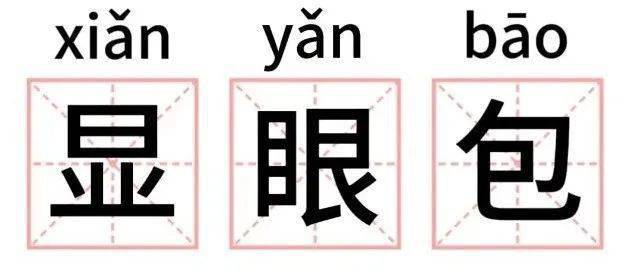13 Class Clown – 显眼包 (Xiǎnyǎn bāo)
Ying Qi
Anonymous 1
simplified Chinese: 显眼包; pinyin: Xiǎnyǎn bāo
Class Clown
“Xiǎnyǎn bāo” (显眼包), or “class clown,” typically refers to an individual, often in a school environment, known for their humorous and sometimes disruptive behavior. “显眼” (Xiǎnyǎn) translates to conspicuous or noticeable, and “包” (bāo) here refers to a person characterized by a particular trait—in this case, someone who stands out due to their antics. In English, the term “class clown” carries both positive and negative connotations. It describes a student who seeks attention through humor, often liked for their ability to lighten the mood but also seen as potentially distracting or not serious about their studies. Class clowns use humor as a social tool, perhaps to gain popularity, to deflect from insecurities, or simply because they enjoy entertaining others.

Picture from https://www.sohu.com/a/700615239_662097
In China, the concept of “Xiǎnyǎn bāo” is also linked with the idea of not conforming to group norms, thus standing out. This deviation could be in fashion, behavior, or other forms of self-expression that draw attention. While the term is not as commonly used in Chinese as “class clown” is in English, the notion of a humorous individual disrupting the norm is a universal one. Today, “Xiǎnyǎn bāo” is seen neutrally on the internet, and many people find it appealing, recognizing the ability to do the right thing at the right moment. In recent popular Chinese variety shows, several celebrities have been labeled as “Xiǎnyǎn bāo” for their comedic behavior, bringing the term into the limelight. Unlike previous funny personas, “Xiǎnyǎn bāo” emphasizes standing out and being the center of attention among a group of otherwise normal, serious individuals.
Apart from celebrities vying for the title of “Xiǎnyǎn bāo,” this behavior is also an expression of personal identity in everyday life. For instance, there are many fun and creative ways to take photos with “Xiǎnyǎn bāo.” It’s fair to say that every industry has its own “Xiǎnyǎn bāo,” like the giant noodle bucket, dopamine wear, etc. The limitless nature of “Xiǎnyǎn bāo” highlights people’s desire to enrich their lives, using the joy brought by these eye-catching figures as a sort of spice in their daily routines.
Here is an example of how the term is used:
Imagine a celebrity on a TV show where everyone is focused on recording, a typically serious occasion. This star might suddenly tell a joke or perform some humorous gestures, prompting laughter from everyone around him. Such actions tend to disrupt the usual atmosphere, making him very conspicuous on the show.
Works Cited:
YinKeMeiXue, X. (2023, June 16). 爆火新词”显眼包”,到底是什么梗?. 澎湃新闻. https://m.thepaper.cn/newsDetail_forward_23506591

